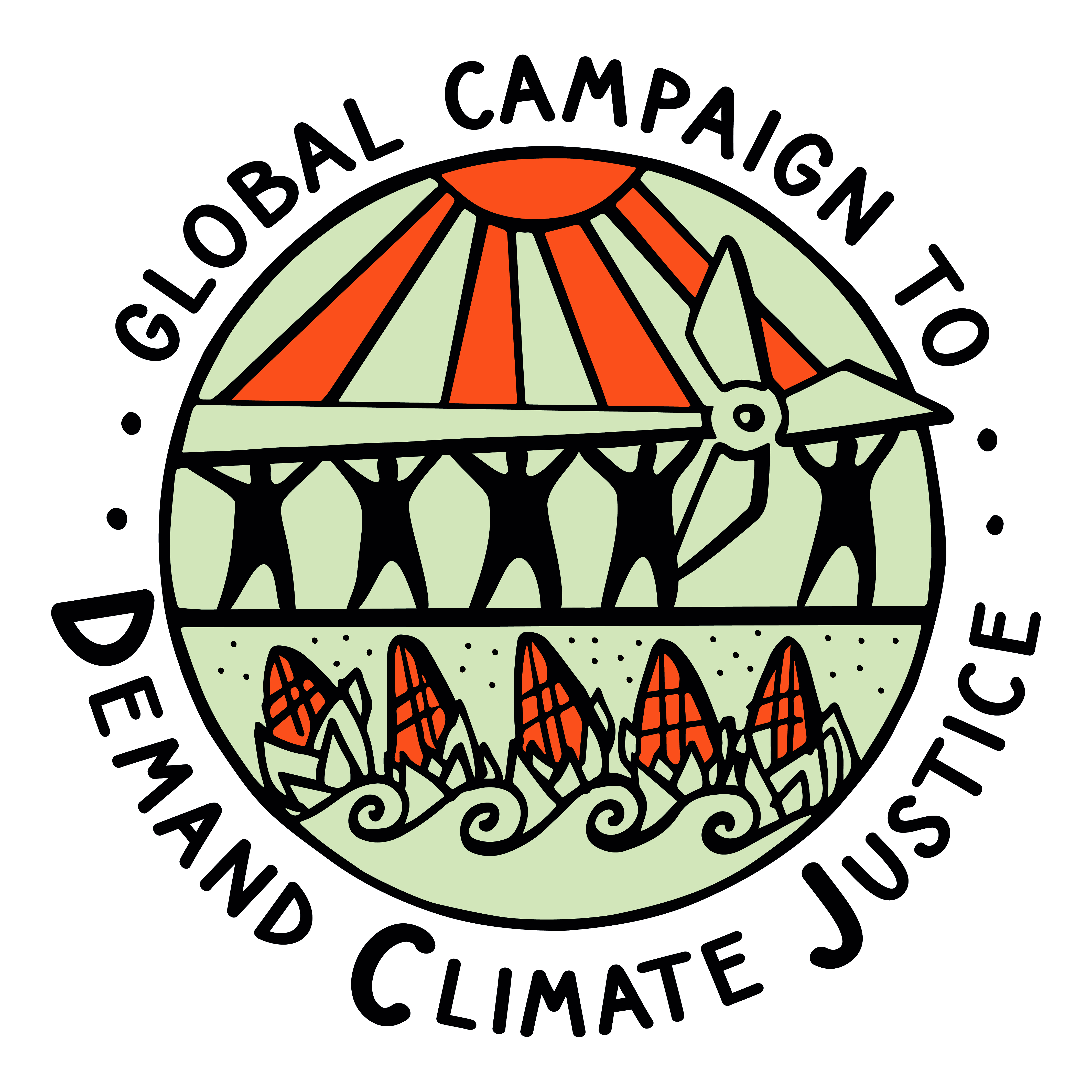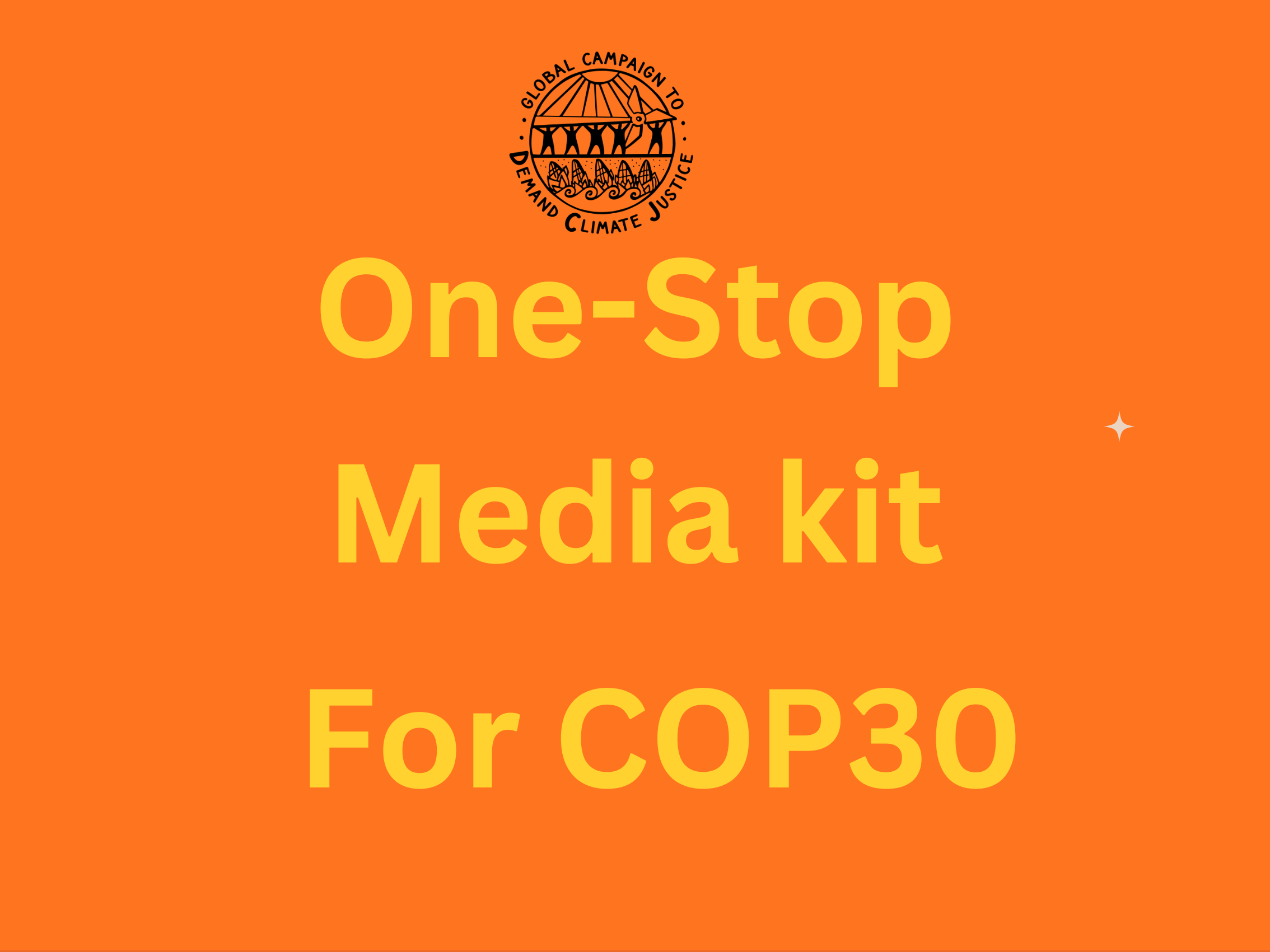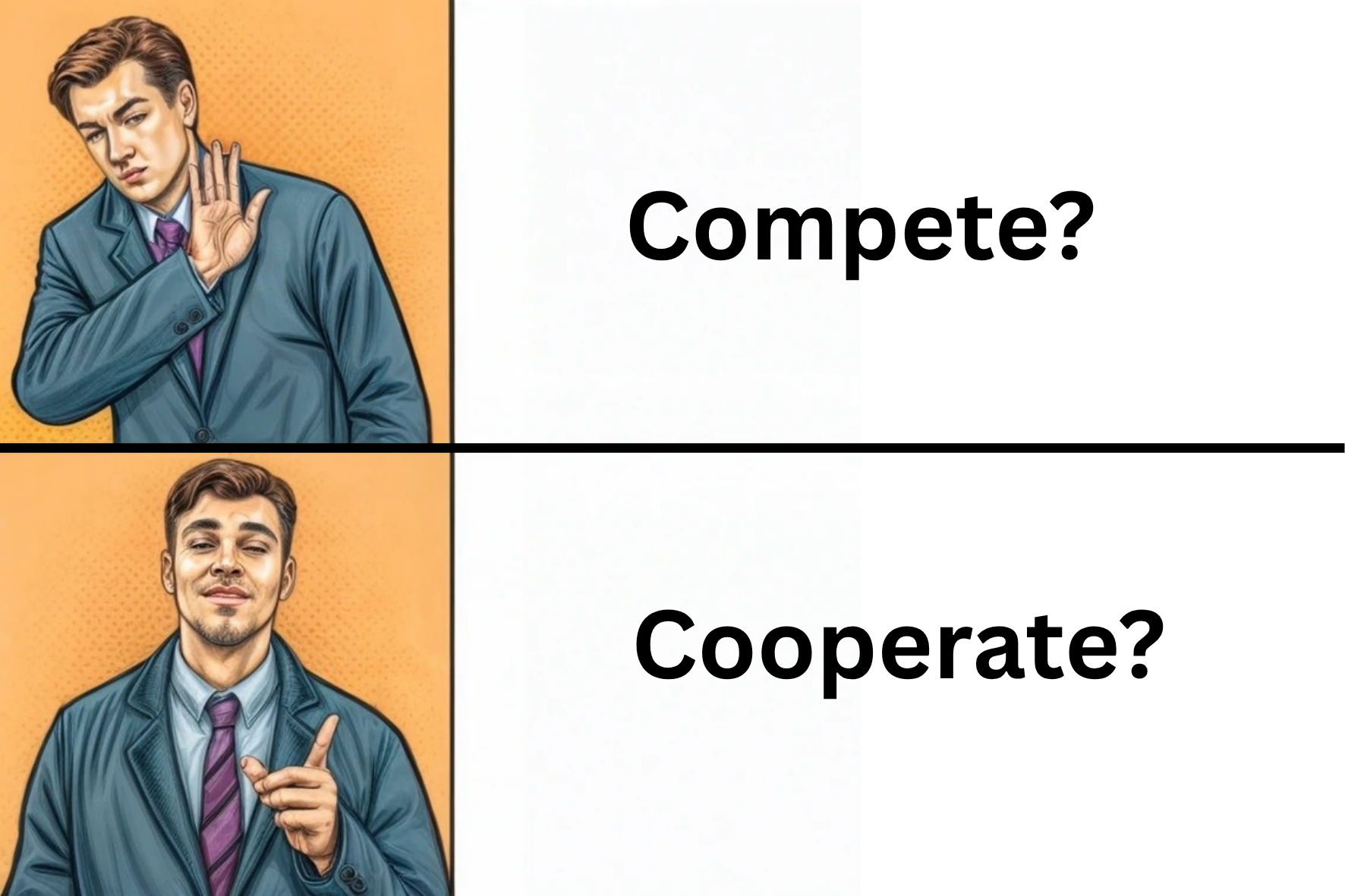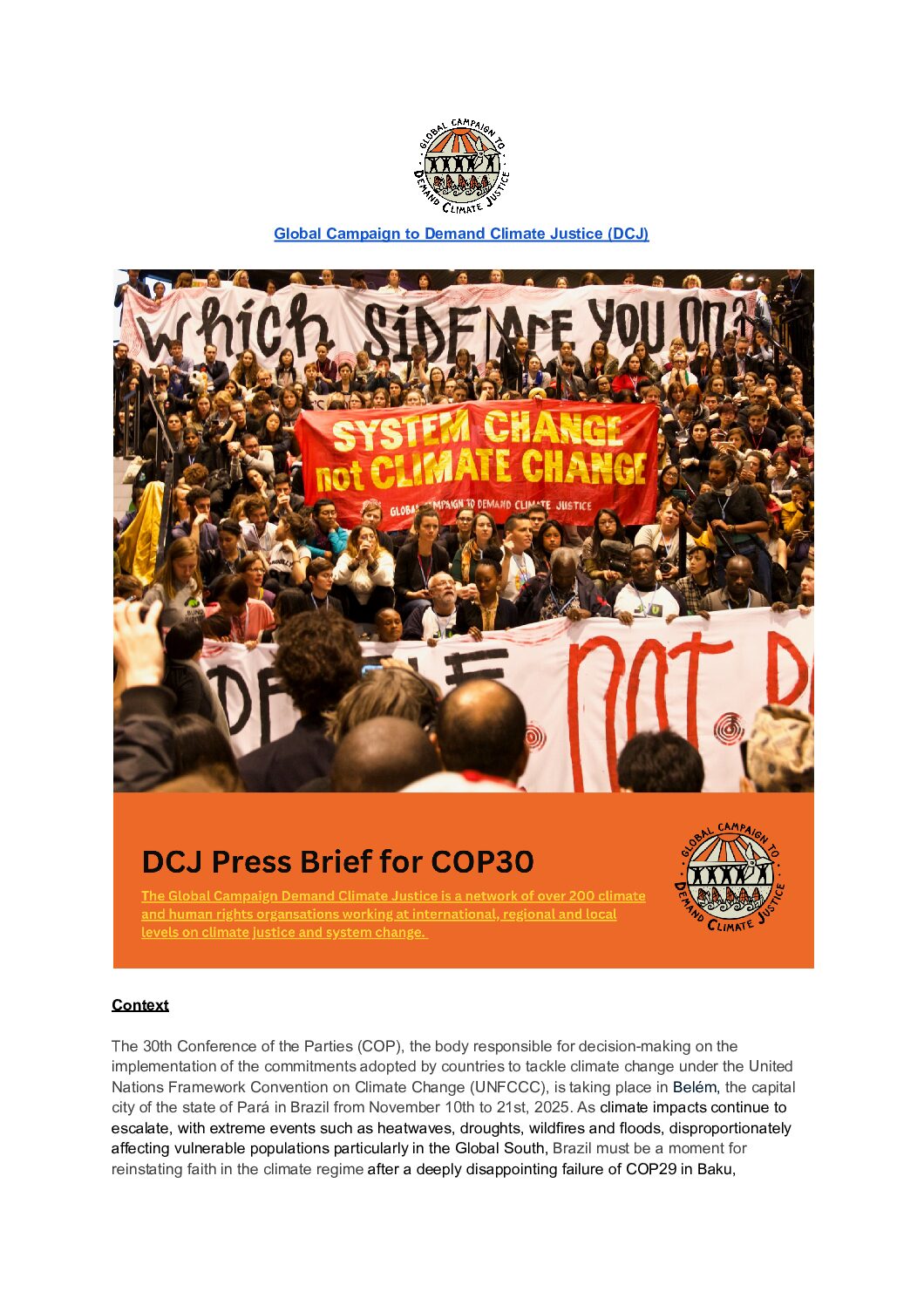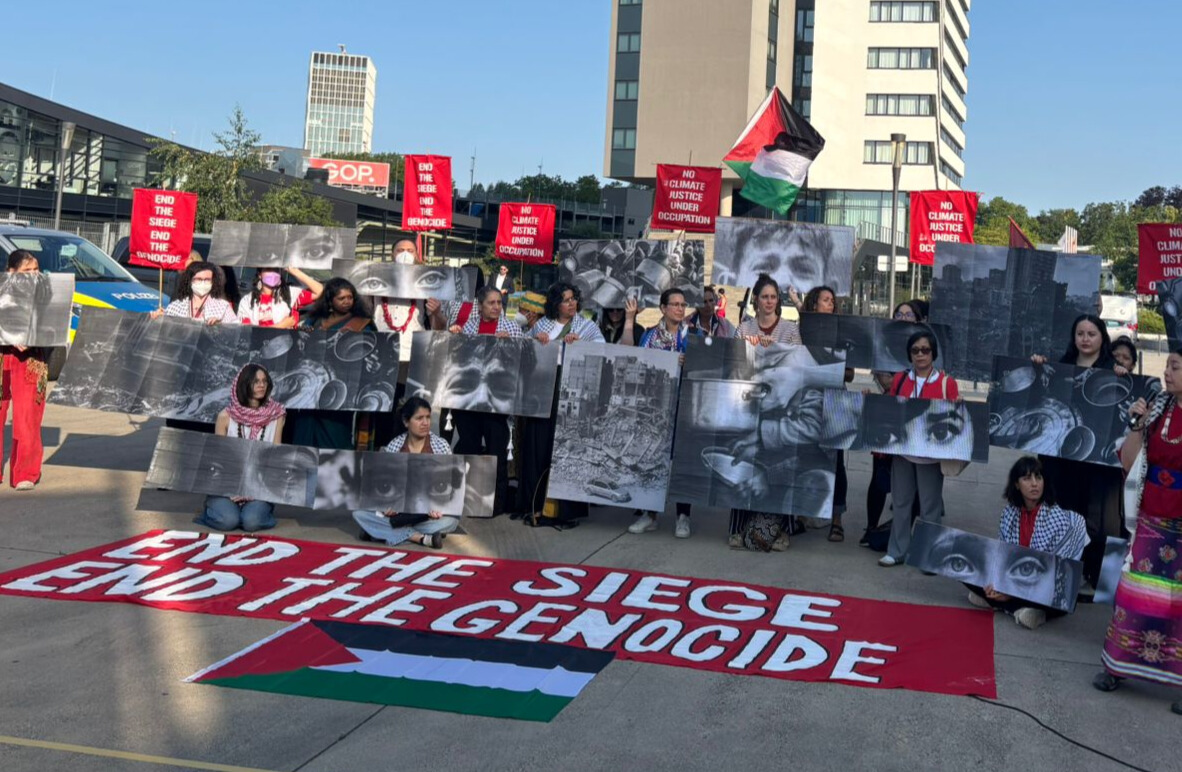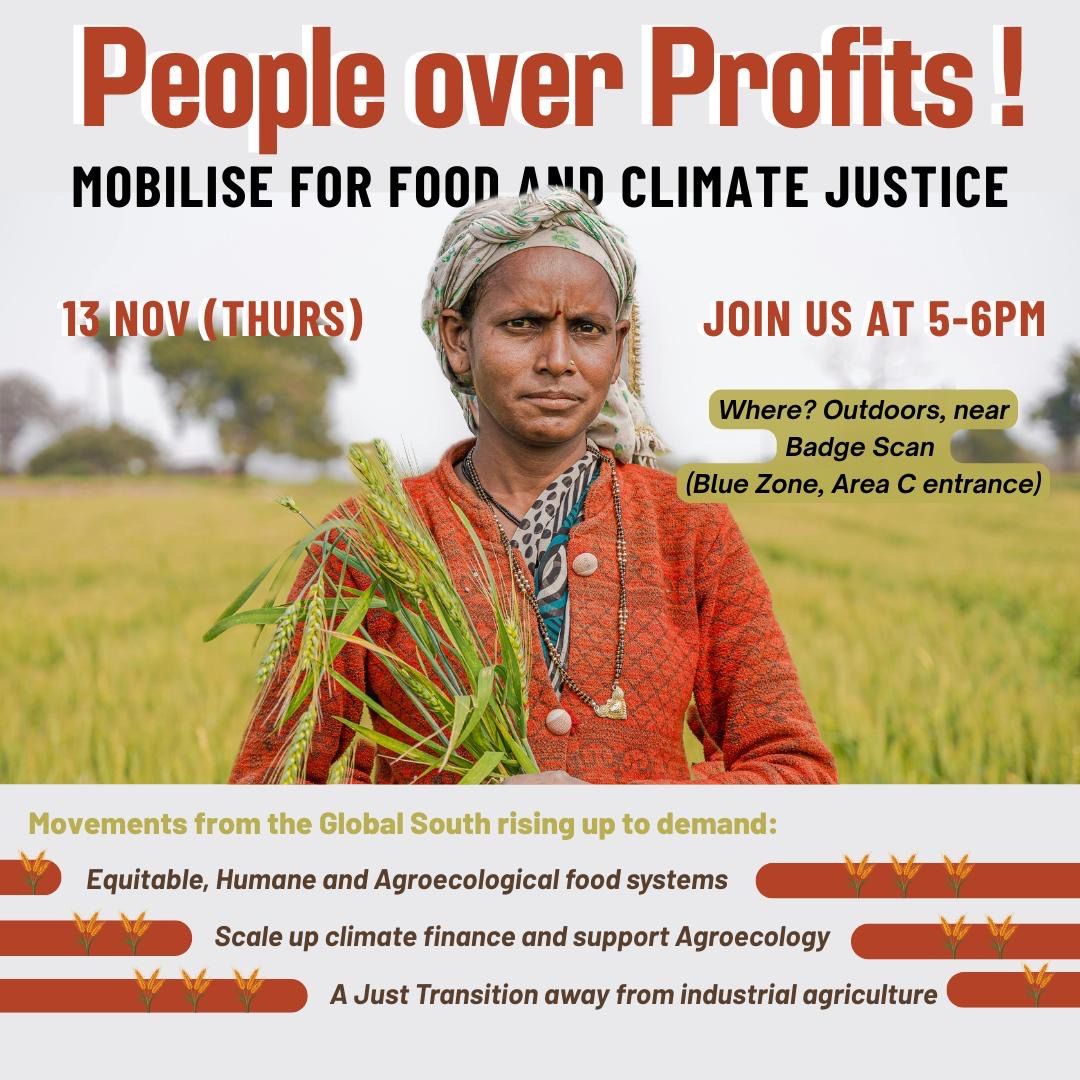
November 14, 2025
Press Release: Food justice activists at COP30 link corporate capture to backtracking of progress, demand ‘Food for People, Not for Profit!’
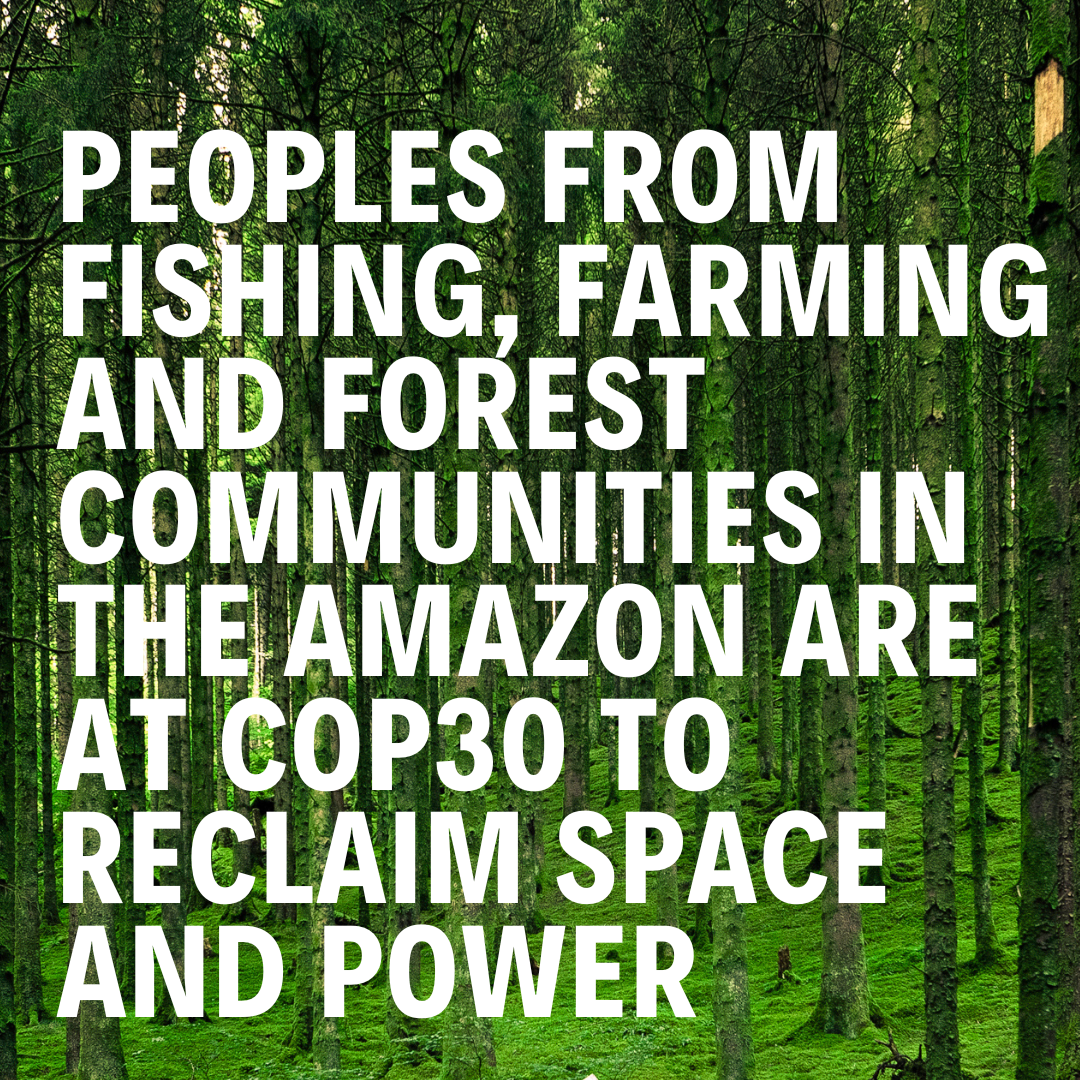
November 13, 2025
Cancelled due to unforeseen circumstances: Peoples from fishing, farming and forest communities in the Amazon are at COP30 to reclaim space and power

November 13, 2025
